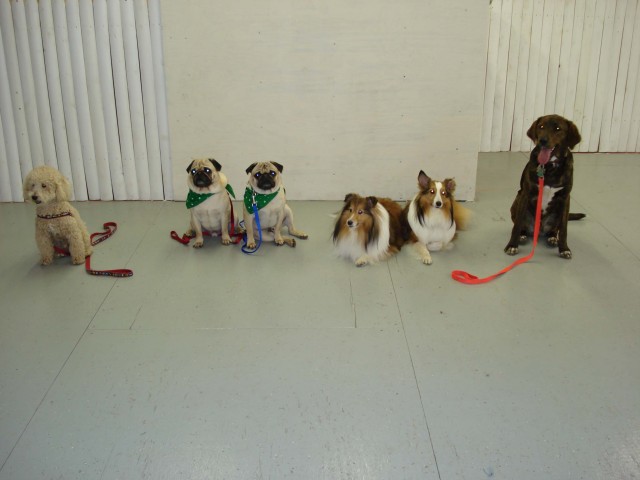QuestionI just adopted a dog, 1.5 years old from the pound. They said that he was a stray, but was once previously owned. (He was fixed.)He has such a sweet and calm disposition, but freaks out when alone. This lab mix has MAJOR separation issues. He will be on perfect behavior while we are home, but when alone, he does horrible things... eats food from the counters, gets into trash, chews the couch. We have given him toys to chew or play with the keep him occupied (the Kong and squeaky things), but he loses interest very quickly (Whether we are home or not). He also freaks out in confined areas alone. For example, we put him in the bedroom and he destroyed the place. In the bedroom with us for the night, perfect behavior! We are signed up to do basic training classes, so hopefully that will help. The shelter said do not confine his, but should we try to crate him? How do we correct these problems?
AnswerObedience classes may help. Consistent rules in the house will help. Dogs who don't know what to expect are more anxious than dogs with a regular schedule and regular rules. Since you just adopted him, it's not unusual that he is worried and anxious and doesn't know what to expect. I'd work on getting him to go voluntarily into a crate when you are home, hang out with the door open, close the door briefly and see if he's okay with it. Some dogs are better in a crate, but others become more anxious and can hurt themselves. Ask him to be separated from you (possibly by baby gates, possibly in crate) even when you are there. Practice your leaving ritual (get your purse, get your keys, etc.)put him up and leave for a few seconds. Practice this until he doesn't get anxious. Make your comings and goings non-emotional (when you walk in the room, go about other things before even saying hello to him). Avoid a lot of petting and comforting, as this often makes the dog more aroused and stimulated and makes them more dependent on you and less able to "stand on their own". Some dogs who appear to have separation anxiety actually just get involved in activities like sofa eating when nobody is around to distract them, so while destrictive behavior is a symptom of SA, it's also a symptom of a dog who doesn't know how to act when given free run of the house. Talk to your vet, and see if there is a good veterinary behaviorist who can give you a training plan and also meds to help you over the rough spots. There are a number of anti-anxiety meds available for dogs that don't do the training for you, but can definitely take the edge off and make the training go smoother. Good luck to you and your new dog. Sandy Case M.Ed, CPDT www.positivelycanine.com

 having problems with toilet training
Question
Oscar
hello
A friend of ours dog, Oscar is a 5
having problems with toilet training
Question
Oscar
hello
A friend of ours dog, Oscar is a 5
 My mini-daschund is breaking ME in
Question
Tyson!
My miniature daschund is 8 months now,
My mini-daschund is breaking ME in
Question
Tyson!
My miniature daschund is 8 months now,
 Dogs Figthing
Question
Stella and Scarlett
I have 2 minature dachshun
Dogs Figthing
Question
Stella and Scarlett
I have 2 minature dachshun
 Male Chesador
QuestionWe have a 8 month old puppy that is more than s
Male Chesador
QuestionWe have a 8 month old puppy that is more than s
 breed identification
QuestionMaggie
QUESTION: Hello - Ive hopped over
breed identification
QuestionMaggie
QUESTION: Hello - Ive hopped over